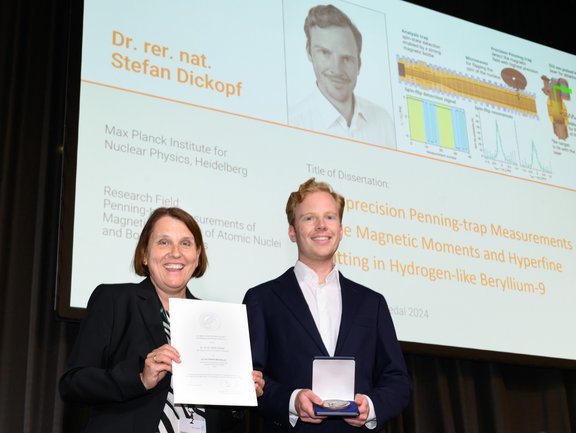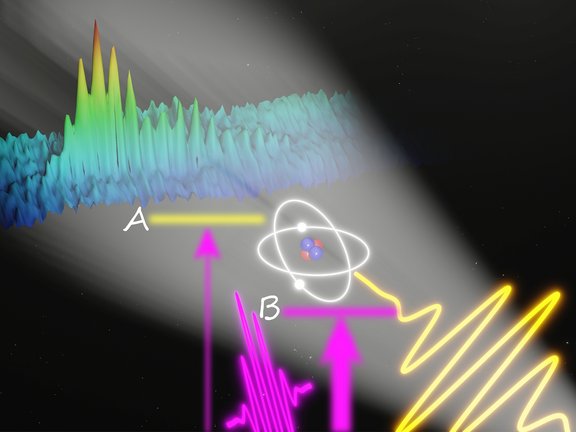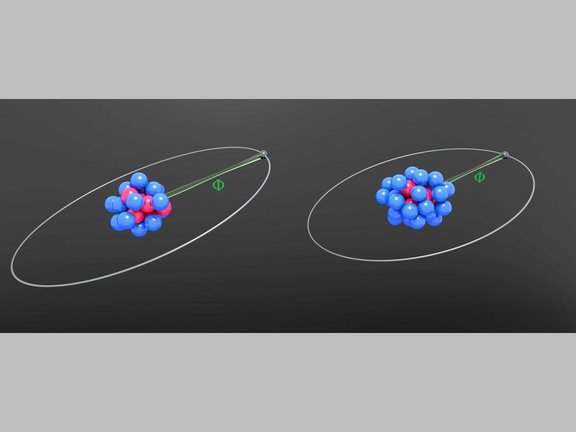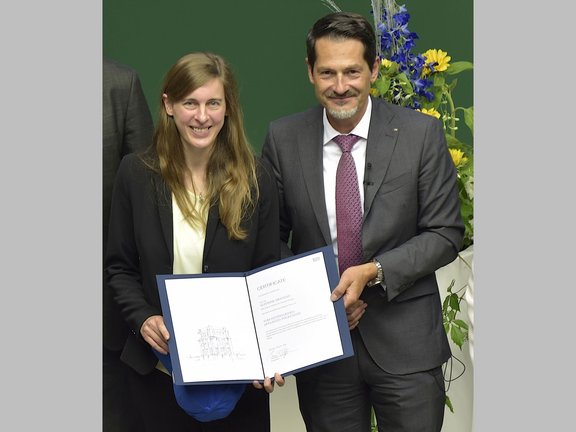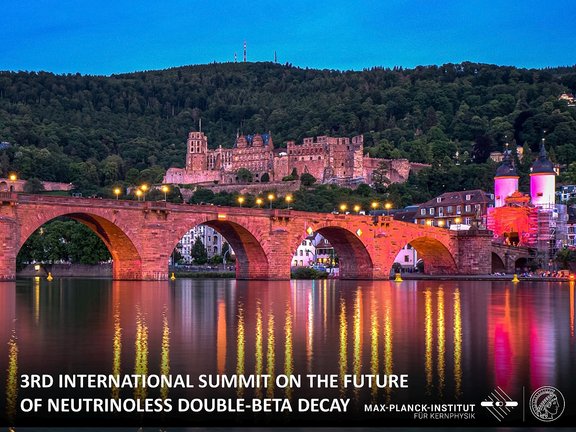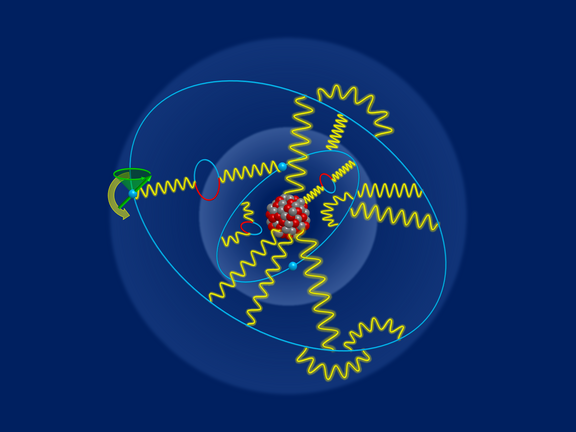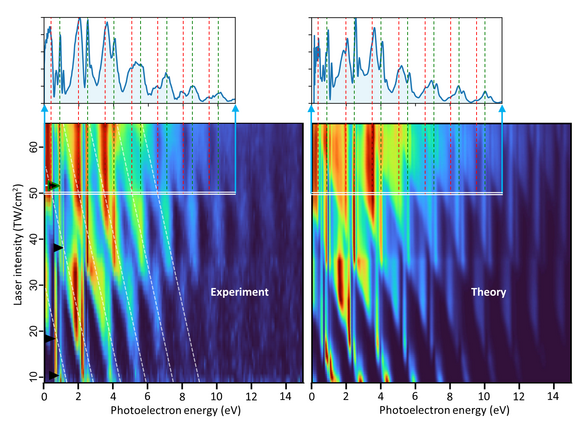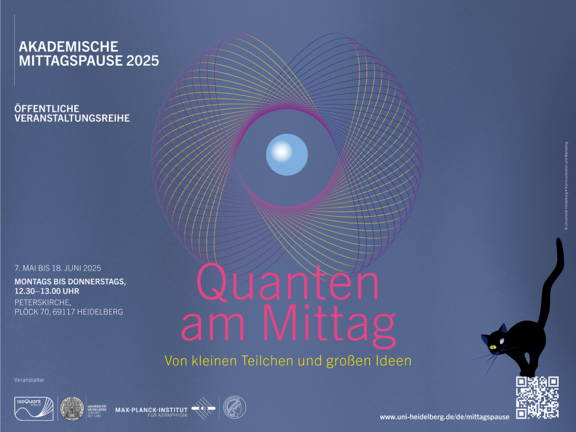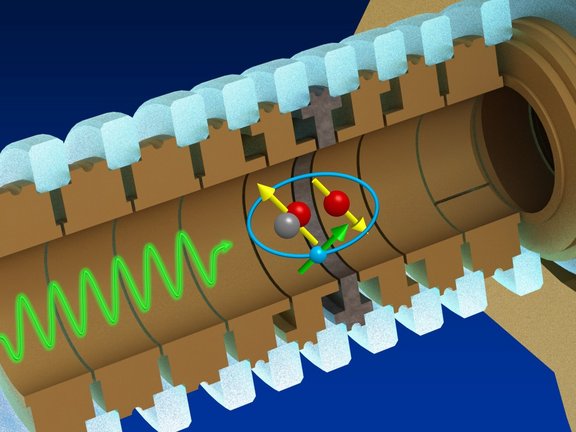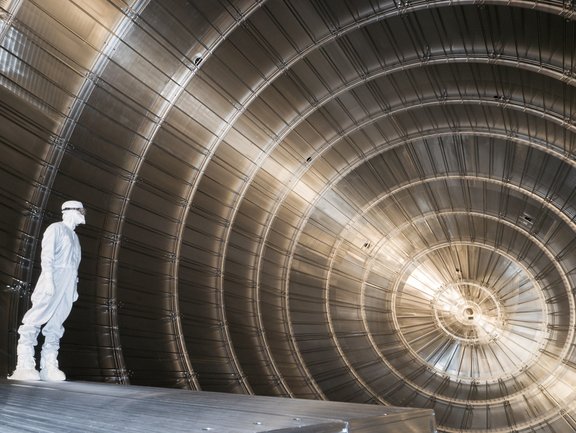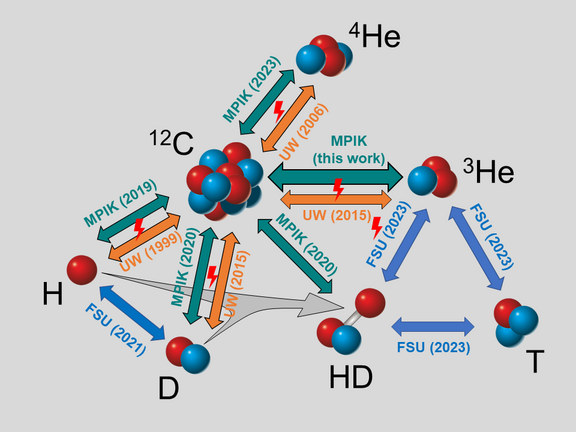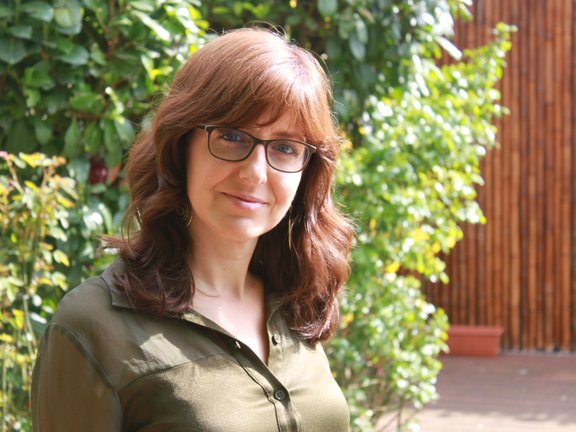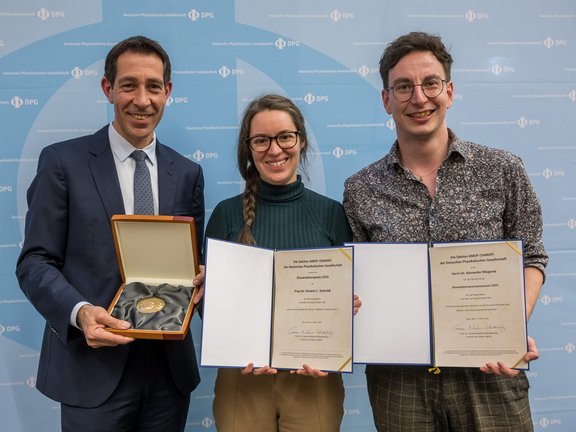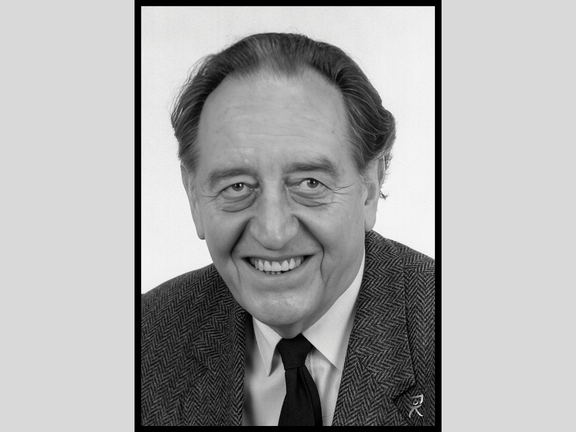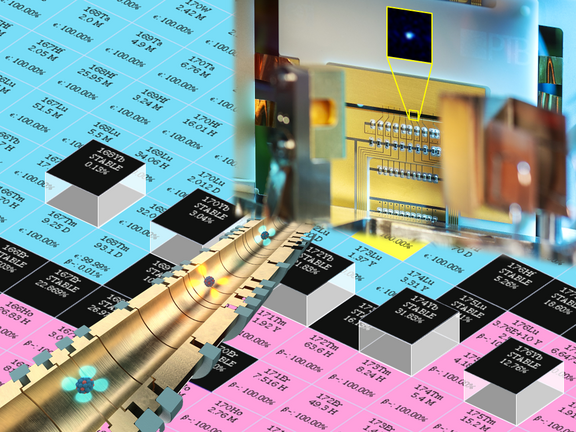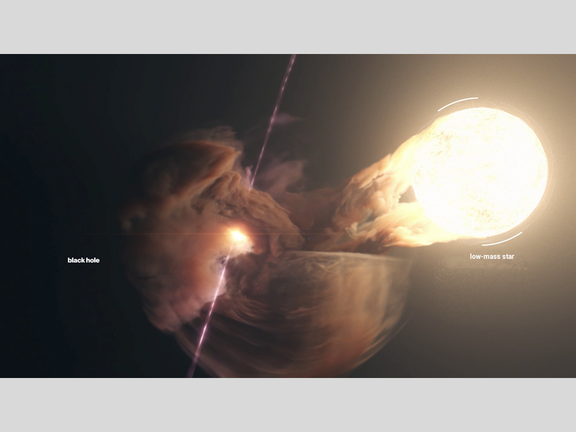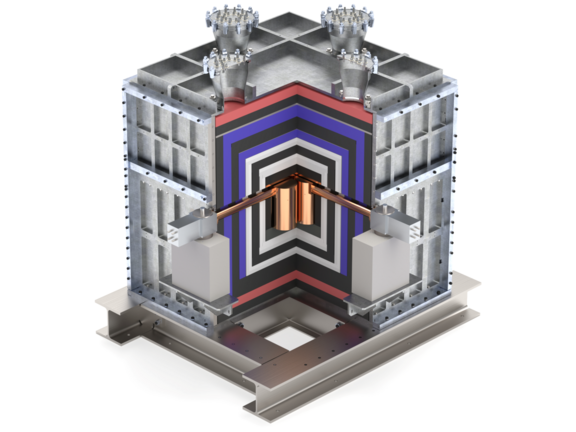All News
Bringing weak transitions to light
A new general concept for laser-induced enhancement of faint spectral lines is experimentally demonstrated for quasi-forbidden transitions in helium.…
Joint effort in the search for new physics
As part of an international collaboration MPIK researchers carried out highly precise measurements as well as calculations on atomic transitions in…
TUM Distinguished Affiliated Professorship for Susanne Mertens
MPIK director Susanne Mertens is honoured by the Technical University of Munich with the title “TUM Distinguished Affiliated Professor”.
Future of neutrinoless double-beta decay: summit at MPIK
The 3rd International Summit on the Future of Neutrinoless Double-beta Decay held at MPIK discussed strategy and roadmap for next-generation…
Listening to electrons talk: g-factor measurement of lithium-like tin
Researchers from the MPIK present new experimental and theoretical results for the bound electron g-factor in lithium-like tin which has a much higher…
Reverse gear in the quantum tunnel
Under-the-barrier recollision dynamics in strong field ionisation of xenon is revealed both theoretically and experimentally by the theory division at…
Protons on the move
The BASE international research collaboration, in which Heinrich Heine University Düsseldorf (HHU) is strongly involved, has successfully relocated…
Quantum at noon. From small particles to big ideas
From 7 May to 18 June, the MPIK, together with the Collaborative Research Centre (SFB) 1225 ISOQUANT at Heidelberg University, is hosting an academic…
Nondestructive quantum state control of a single molecular hydrogen ion
Using the ALPHATRAP Penning trap at MPIK, physicists demonstrated nondestructive control and readout of internal quantum states of a molecular…
Astroparticle physics: Neutrinos weigh less than 0.45 electronvolts - precision scale KATRIN sets new record
The international KArlsruhe TRItium Neutrino Experiment (KATRIN) at the Karlsruhe Institute of Technology (KIT) has once again surpassed its own…
The last piece resolving the low-mass nuclei puzzle
Using the high-precision Penning trap for light ions (LIONTRAP), physicists from MPIK and the GSI Helmholtzzentrum für Schwerionenforschung Darmstadt…
Girls- und Boys'Day at MPIK
On 3 April, the nationwide GirlsDay and BoysDay took place again. At the Max Planck Institute for Nuclear Physics, a total of 38 children took part…
Teresa Marrodán Undagoitia appointed as professor at the Faculty of Science of the University of Amsterdam
Teresa Marrodán Undagoitia has been appointed as professor by special appointment in Novel Detection and Analysis Techniques for Dark Matter and…
DPG Dissertation prize for Viviane Schmidt
This year's dissertation prize of the German Physical Society (DPG), section atoms, molecules, quantum optics and photonics, was awarded to Dr.…
A new benchmark for quantum electrodynamics in atoms
The g factor of boron-like tin ions is determined with an uncertainty of only 0.5 parts per billion. The second high-precision measurement for a…
Obituary for Hugo Fechtig
On 20 February 2025, at the age of 95, passed away Professor Dr. Hugo Fechtig, Emeritus Scientific Member of the Max Planck Institute for Nuclear…
Cross-disciplinary work on high-precision measurements pushes bounds on dark forces
Atomic, nuclear and particle physicists join efforts to search for new physics and open a new window to nuclear structure
So small and yet so powerful - The hidden power of the smallest microquasars
Researchers found for the first time evidence that even microquasars containing a low-mass star are efficient particle accelerators, which leads to a…
Groundbreaking discovery by the CONUS+ experiment
First observation of coherent elastic neutrino-nucleus Scattering of reactor anti-neutrinos by the CONUS+ experiment.
